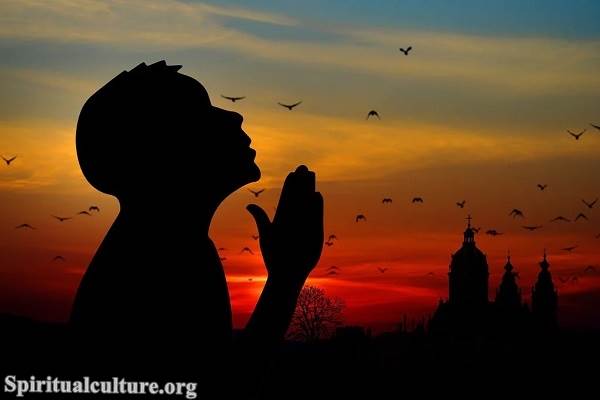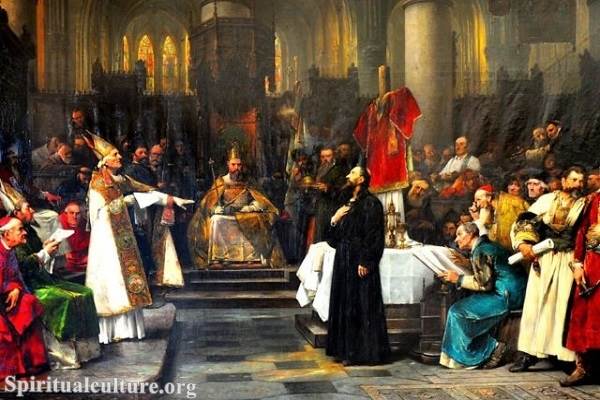From the outside, Christianity may seem like a single, unified faith. But within its branches lie a rich diversity of traditions, expressions, and convictions — especially within Protestantism. What began as a single act of reform in the 16th century has since blossomed into hundreds of distinct denominations, each carrying unique perspectives on scripture, worship, and the life of faith.
Why did Protestants split? What led Christians who shared the same Bible and Lord to take different roads? And what do these differences reveal — not only about doctrine, but about the human soul’s longing for truth, order, and intimacy with the Divine?
In this article, Spiritual Culture invites you into a deeper understanding of the heart behind Protestant division. We’ll explore the historical roots, spiritual motivations, and theological distinctions that continue to shape the Christian landscape today. Whether you’re a seeker, a skeptic, or a lifelong believer, this journey offers more than just information — it offers a lens into the mystery of unity and diversity in faith.
The Reformation: The First Great Split
A Cry for Reform, Not Rebellion
In 1517, Martin Luther, a German monk, nailed 95 theses to the door of the Wittenberg Church. He wasn’t trying to start a new religion — he was calling the Church back to its roots. Luther was disturbed by the sale of indulgences (payments for forgiveness), corruption among clergy, and teachings that he believed had drifted far from Scripture.
He declared:
“Unless I am convinced by Scripture and plain reason… I cannot and I will not recant anything, for to go against conscience is neither right nor safe.”
— Martin Luther at the Diet of Worms, 1521
This single act lit the fire of what became the Protestant Reformation, which would challenge not just the practices of the Roman Catholic Church, but its authority altogether.
The Five Solas: Foundation of Protestant Thought
The Reformation was centered around five foundational principles, often called the Five Solas (Latin for “alone”):
- Sola Scriptura (Scripture alone): The Bible is the ultimate authority.
- Sola Fide (Faith alone): Salvation is by faith, not by works.
- Sola Gratia (Grace alone): Salvation is a gift from God, not earned.
- Solus Christus (Christ alone): Christ is the only mediator between God and man.
- Soli Deo Gloria (To the glory of God alone): All life is lived for God’s glory, not human fame.
These principles were revolutionary. They democratized spiritual authority, empowering individuals to read and interpret Scripture for themselves. But this decentralization also sowed the seeds for future divisions.
Why Protestants Split: A Spiritual Perspective
Truth, Conscience, and the Complexity of Unity
From a spiritual standpoint, the Protestant splintering reflects a deeper human tension: the desire for both truth and togetherness. When conscience collides with community, when doctrine diverges from tradition, people are faced with a choice — and often, the choice leads to parting ways.
Jesus prayed:
“That they may all be one, as you, Father, are in me and I in you.”
— John 17:21
Yet even among the earliest followers of Christ, disagreements arose. Paul and Barnabas parted ways over their missionary approach (Acts 15:36–41). Peter and Paul debated how the Gospel should be applied to non-Jews (Galatians 2:11–14). Unity, it seems, is not uniformity — and sincere faith sometimes leads to sincere division.
Major Protestant Denominations and Their Distinctives
Let’s explore the most prominent Protestant traditions, what sets them apart, and what spiritual questions they seek to answer.
Lutheranism: The Reformation’s Firstborn
Grace-Filled Sacramental Tradition
Founded on the teachings of Martin Luther, Lutherans emphasize:
- Justification by faith alone
- The authority of Scripture
- The presence of Christ in the Eucharist (a belief called sacramental union)
Lutherans retain more of the Catholic liturgical tradition than most Protestants. Their worship is often formal, structured, and centered on Word and Sacrament.
“The Word they still shall let remain…” — A Mighty Fortress Is Our God (Luther’s hymn)
Lutheranism answers the question: How can I be assured of God’s grace? And its answer is: By trusting God’s promise, not our performance.
Reformed and Presbyterian Churches: The Sovereignty of God
God’s Rule in All of Life
Emerging from the theology of John Calvin and Ulrich Zwingli, the Reformed tradition emphasizes:
- God’s sovereignty over all things
- Predestination (that God elects those who will be saved)
- Covenantal theology (seeing the whole Bible as a unified story of God’s promises)
Worship is often simple, Scripture-heavy, and reverent. The Presbyterian branch governs its churches through elders (presbyters), emphasizing communal discernment.
These churches ask: What does it mean to live under God’s rule? And their answer: Every part of life — art, politics, economy, family — belongs to God.
Anglicanism and the Episcopal Church: A Middle Way
Unity of Scripture, Tradition, and Reason
The Church of England broke from Rome under King Henry VIII, but its theology was deeply influenced by both Catholic and Reformation currents. The Anglican ethos is marked by:
- The Book of Common Prayer
- A “via media” (middle way) between Protestantism and Catholicism
- Emphasis on sacrament, Scripture, and tradition
The Episcopal Church is the American expression of Anglicanism.
Anglicans ask: Can we hold together truth and beauty, reason and mystery? And their answer is found in liturgy that invites participation and reflection.
Baptist Churches: Believers’ Faith and Freedom
A Personal and Voluntary Faith
Baptists emerged in the 17th century with a radical claim: faith must be personal and adult. They rejected infant baptism and insisted that:
- Only those who freely profess Christ should be baptized
- The local church is autonomous
- Religious liberty is a God-given right
Baptist worship is usually simple and sermon-centered. There’s a strong emphasis on evangelism, personal conversion, and congregational authority.
Baptists ask: What does it mean to truly choose faith? Their answer: Faith is a free, conscious, and transforming decision.
Methodism: Grace in Action
A Practical and Personal Holiness
Founded by John Wesley in the 18th century, Methodism began as a revival movement within Anglicanism. It emphasizes:
- Personal holiness and social justice
- A structured approach to spiritual growth (the “method” in Methodism)
- Prevenient grace — that God seeks us before we seek Him
Methodists are deeply mission-oriented and have been pioneers in education, health care, and abolition movements.
They ask: How does grace shape the whole of life? Their answer: By sanctifying our hearts and sending us out to heal the world.
Pentecostalism: The Spirit Moves
Power, Presence, and Prophecy
Beginning in the early 1900s (notably the Azusa Street Revival), Pentecostalism emphasizes:
- The baptism of the Holy Spirit
- Speaking in tongues (glossolalia)
- Miracles, healing, and spiritual gifts (charismata)
Worship is expressive, emotional, and expectant. Pentecostals believe God is not distant, but present and powerful, still speaking today.
They ask: Is the Spirit still alive among us? Their answer is a resounding yes — through prophecy, healing, and revival.
Underlying Causes of Division
Theology: What Does the Bible Really Say?
Different interpretations of Scripture — on baptism, communion, salvation, predestination, church leadership — are the primary doctrinal reasons for Protestant splits.
“Now I plead with you… that there be no divisions among you, but that you be perfectly joined together in the same mind.”
— 1 Corinthians 1:10
Ironically, the freedom to interpret Scripture individually led to widespread diversity in belief.
Culture and Context: Faith in Local Clothing
Culture shapes theology. African American churches, for instance, developed within a history of suffering and resistance. Korean Christianity, shaped by Confucian heritage and modern trials, emphasizes prayer and perseverance.
Denominations often reflect not just theological convictions, but social identity: race, class, geography, education, and political values all play a role.
Power and Structure: Who Decides?
Some splits result from disagreements not about doctrine, but about authority: who makes decisions, who leads, and how change happens.
The rise of women in ministry, LGBTQ+ inclusion, and evolving views on morality have further divided modern Protestant denominations — some seeking to uphold tradition, others responding to new interpretations of love and justice.
Is Division a Failure or a Feature?
Unity in Diversity?
From a spiritual lens, the multitude of denominations might seem tragic — a fragmentation of the Body of Christ. But perhaps, like the many branches of a tree, they reflect different ways God reaches different souls.
“There are varieties of gifts, but the same Spirit; and varieties of service, but the same Lord.”
— 1 Corinthians 12:4–5
Each denomination answers a different human question — about assurance, freedom, authority, mystery, or power. Together, they form a mosaic of spiritual longing.
Reflect and Reimagine
What does this all mean for you? If you’ve ever felt overwhelmed by the divisions of Christianity, know this: at its heart, each Protestant denomination seeks to love God, honor Christ, and live by the Spirit.
Division is real. But so is devotion. Behind every split is a soul trying to hear God rightly.
May this exploration not only inform you — but form you. Let it awaken your own questions, your own seeking, and your own openness to the mystery of faith.
And may we all move toward that ancient prayer — not for uniformity, but for unity in love:
“Make every effort to keep the unity of the Spirit through the bond of peace.”
— Ephesians 4:3
Whether you belong to a denomination or none, the Spirit’s call is the same:
Seek truth. Live humbly. Love deeply.
We are many — but the invitation is One.
Written with love and depth by Spiritual Culture — your companion in seeking what is sacred, real, and whole.



